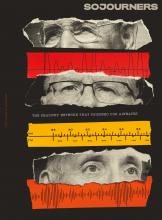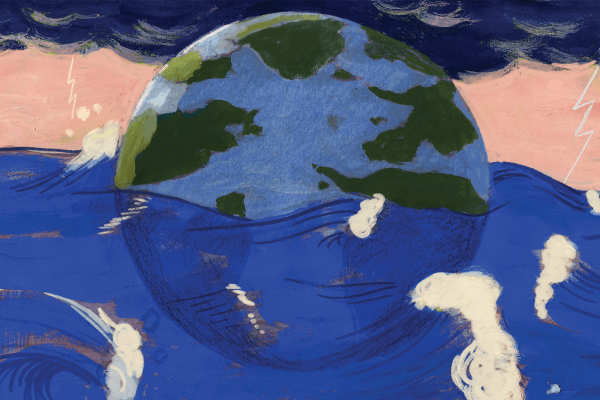IN 2018, CLIMATE SCIENTISTS reached a consensus that, based on current global emissions, we have roughly 12 years to dramatically reverse course before we cause irreparable harm to our planet and our way of life. These and other predictions cause me to lose sleep at night, particularly when I think about the world that my two sons will inherit.
But this alarming trend is not inevitable, nor are we powerless to change course. Preventing the worst consequences and putting the planet on a zero-carbon trajectory will require a revolution of social and political will. Catalyzing this revolution will require new language, new metaphors, and new messengers.
“I can’t breathe.” These were the prophetic words said by my pastor, Rev. Howard John-Wesley, in a sermon in which he made the case that we are on the brink of ecological destruction. He preached about the thousands of species that go extinct every year. He emphasized that Americans constitute 5 percent of the world’s population but burn 25 percent of the world’s fossil fuels. These and other trends of conspicuous consumption and abuse are driving us toward global catastrophe.
Read the Full Article

